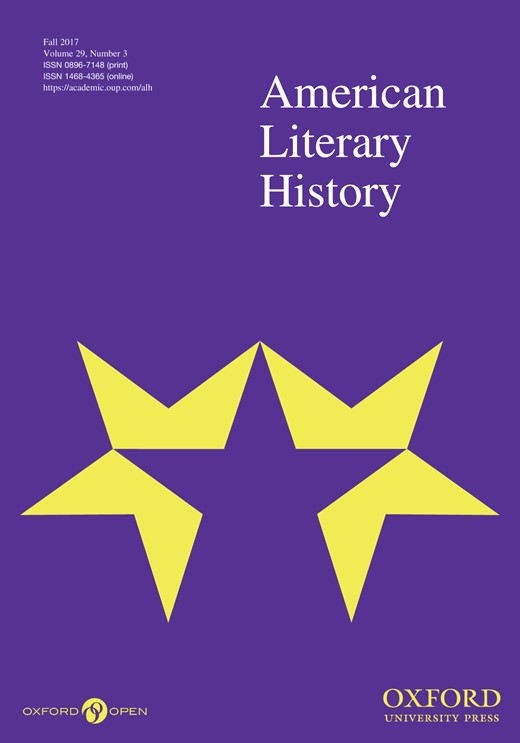-
Views
-
Cite
Cite
Susan Gillman, Translation as History/History as Failure, American Literary History, Volume 29, Issue 3, Fall 2017, Pages 592–601, https://doi.org/10.1093/alh/ajx022
Close - Share Icon Share
Abstract
This essay review features a group of translation studies books, published between 2005 and 2016, which are connected by their focus on issues of untranslatability. Arguing that we are witnessing an insistence in very different quarters on what is variously called mistranslation, nontranslation, incomparability, or simply failed translation, the essay moves from this jumping-off point in two directions. First, a look back to Walter Benjamin’s foundational work on the philosophy of translation and of history connects both of these projects to his championing of the potential uses of failure for emancipatory purposes. Second, a look forward to the translational potential for rethinking American literature reveals a series of candidates, from Washington Irving and Melville to Faulkner and Maryse Condé, for the worlding of the traditional canon. Given the longstanding internationalism of American literatures and the many works with some significant investment in other languages and translation, it is provincially presentist, radically shortsighted, to look exclusively to today’s global novel for paradigms of translational literatures. Finally, the essay returns to Benjamin, making a brief for historicizing, for understanding translation as history/history as failure. In both spheres, translational and historical afterlives emerge from prematurely foreclosed possibilities of the past, unrealized literary and political projects, enabling us in the present to reimagine a politics for the future.




